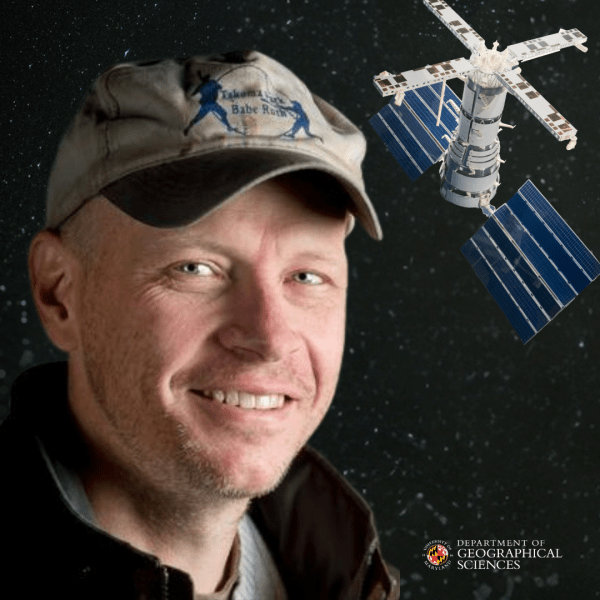Excellence in Remote Sensing: Professor Hansen Receives 50th Annual William T. Pecora Award
As Professor Matthew Hansen Joins Past UMD Pecora Award Recipients, His Dedication to Global-Scale Remote Sensing and Creating Globally Consistent, Locally Relevant Maps Remains Steadfast
"Matt has had an outstanding career in remote sensing, first developing a capability for global AVHRR monitoring of land cover and then pioneering the use of global Landsat data,” said Distinguished Professor Chris Justice, who nominated Hansen for the award.
Through the Global Land Analysis and Discovery (GLAD) laboratory, led by Hansen and Research Professor Peter Potapov, he established a real-time deforestation monitoring system based on Landsat imagery on a global scale. This capability was later integrated into the publicly accessible Global Forest Watch platform in collaboration with the World Resources Institute (WRI). The GLAD lab now offers a variety of new global land cover and change products.
“No one has done more to show the global capability of Landsat than Matt and he is fully deserving of the Pecora Award,” Justice remarked.
In the words of the honoree himself, the Pecora Award symbolizes more than just individual achievement; it represents a collective endeavor to unravel the complexities of our changing planet.
“As we have gained more and more experience, gained access to better and better data, and advanced new approaches, we are getting a more precise picture of human-induced and natural impacts on the global land surface,” Hansen said, underscoring the evolution of remote sensing.
As Hansen joins the past Pecora Award recipients from the UMD faculty, including Chris Justice, John Townshend and Sam Goward, he feels a deep sense of honor. Building upon their legacy, Hansen remains steadfast in his commitment to global-scale remote sensing.
”I have pushed hard to create what Tom Loveland, another Pecora recipient and colleague, used to say were ‘maps that are globally consistent and locally relevant.’ We are continually advancing to that standard.”
Published on Wed, 04/24/2024 - 11:25


